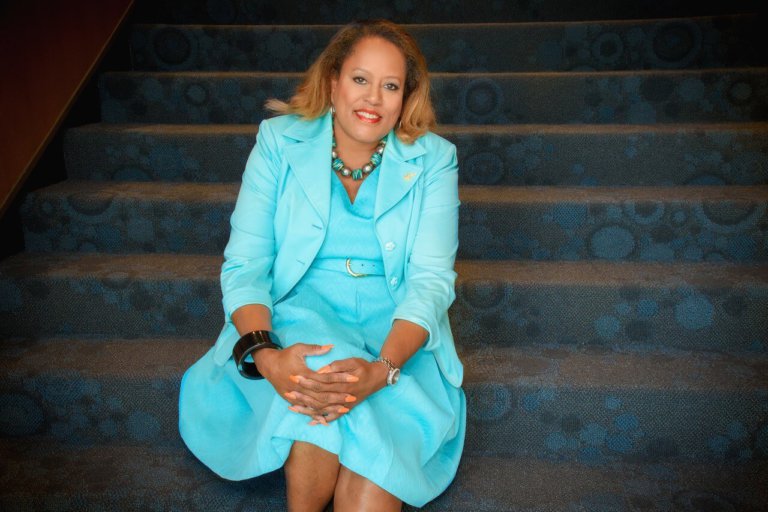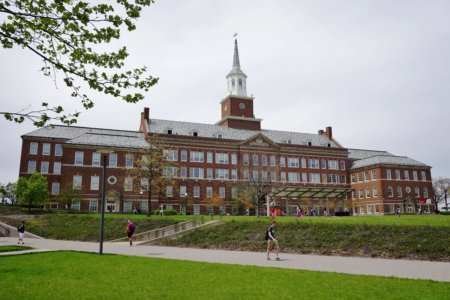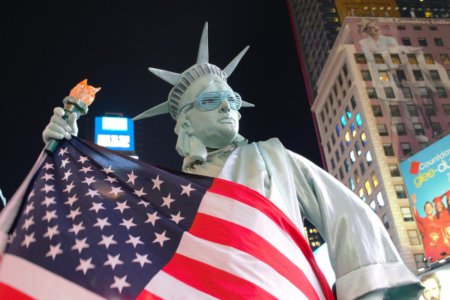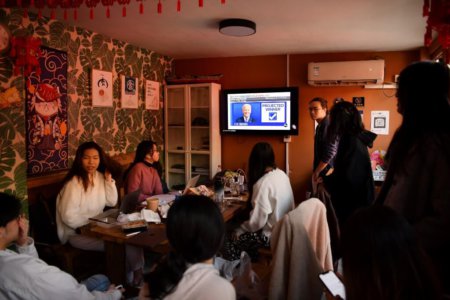
Black Friday, an informal name for the Friday following Thanksgiving Day in the US, is usually thought of as a day to shop until you drop. Where others rush for deals and bargains, some families with students are seeking something else: US college scholarships.
They can do this with the Black Friday Scholarship Bootcamp. It is a programme to shop for scholarships — how to win them, how to get into colleges, with some inspirational speeches by 21st century career professionals. This year the programme goes virtual and global due to COVID-19.

The boot camp aims to help students win college scholarships to pay for their college education and study abroad opportunities to increase their marketability when they begin their careers. The Black Friday Scholarship Bootcamp was first launched by author and parent Gwen Thomas in 2013. Students get to participate in practical hands-on activities along with ACT-SAT college prep, while parents learn how to complete the Free Application for Federal Student Aid form and clean up their credit in time, just in case they need to apply for loans. Students and parents will also get to hear the success stories of other students in the Black Friday Scholarship Bootcamp — it is a full day of learning with opportunities to win prizes, money, and so on.
Founder Gwen Thomas has worked with students in Vietnam, Trinidad and Tobago, Mexico, South Africa, and Honduras. Below we speak to her to learn more about the bootcamp and how it came to be.
Tell us a bit more about yourself, and the sudden change in career.
I am a divorced mother of one son. Before starting this non-profit, I started and ran an entertainment marketing business in Chicago and later in Detroit for nearly 20 years until 2012. We used a bit of my marketing savvy and research skills to help brand my son to win awards and community service acknowledgments. It resulted in him winning US$500,000 in college scholarships and the choice to study abroad in 30 countries. He graduated from Morehouse College in Atlanta — a privately historically black men’s college — and graduated from Johns Hopkins University’s School of Advanced International Studies, a private college in Washington, DC.
What made you start the Black Friday Scholarship Bootcamp?
In 2014, I received a phone call from the Charles Wright Museum of African American History in Detroit, my hometown. People were looking for the “The Scholarship Mum” and we both learned that was referring to me. The Charles Wright Museum knew that I had previously conducted successful scholarship workshops at the museum and other places in town, wanted me to host a large programme there.
When people learned of my son’s success, I would get calls from friends asking if I would help their children, and then calls from friends of friends. From then on, I created a pilot programme to define who my audience and demographics was. With encouragement from my son who was living in DC at the time, I moved to Washington to learn more about working with the US Department of Education.
A month before Thanksgiving, the Detroit museum called and asked if I could do a seminar sometime soon, and I suggested Thanksgiving weekend, but they were reluctant as it is a big shopping day and they weren’t sure if people would attend. I had the idea to call the event the Black Friday Scholarship Bootcamp.
To make it relevant, I created a mantra: “While Americans are shopping for Christmas gifts, our students will be shopping for college scholarships.” When I held the programme in Detroit, there were 200 people there. The audience encouraged me to write my book. I left there with more than 100 orders of my book that had not been written. Three months later “The Parent’s Smart Guide to Sending Your Kids to College without Going Broke” was published. This event grew from one auditorium in the museum, to the entire building with 340 people in attendance each year.
How do you help students to win college scholarships abroad? Walk us through the process.
Last year, we created the Michigan STEM International Exploration Tour where we raised money through corporations and foundations for our South Africa trip. Every two years, our goal is to provide 11th and 12th graders an orientation to studying abroad. It is aimed at students who expressed an interest in science, technology, engineering, and mathematics, and inspire them to go to these industries.
This programme will improve STEM literacy, global exposure, and promote academic and social growth. Students also have the chance to engage in hands-on workshops and learn the many career paths available with an education in STEM. The plan was to head to South Africa this year but COVID-19 got in the way.
We also help students study abroad by finding scholarships that will pay for their tuition and expenses. There are numerous programmes for college students, but you have to apply early. Most colleges have study abroad programmes. The students who wait until the last minute are the ones who have problems with funding. For students, who want to come to America, there are many programmes with the State Department and foundations, but planning is crucial. I help students with the search and applications. Sometimes it is difficult for students who do not have sponsors. I am building relationships with colleges, organizations, and the US Department of State. We encourage these young students to gain global knowledge and teach urban students about their opportunities abroad. This year was the first year we worked with high school students and provided opportunities for them to study overseas.
We also educate students about the IIE passport — a search engine for all the study abroad programmes, and we usually have an international guest who talks about options. The main thing is we educate students on the navigation process of passports, paperwork, and so on.
I also serve as an agent for Eastern Michigan University (EMU) for students who want to come to the US, but that also has slowed down due to COVID 19. EMU will partner with Ann Arbor-based Global Educational Excellence to support a centre for international recruitment in Jordan which will be the main headquarters for a diverse recruitment team working with students and parents throughout the Middle East and North Africa region.
Do you expect a big turnout this year for the Black Friday Scholarship Bootcamp?
We want to be consistent, so we are holding our event virtually to practise safety measures with regards to COVID-19 and have opened it up globally to reach more students since we are not allowed to travel. We are also currently partnering with several organisations so we feel good about involvement. We have some great speakers lined up, and many incentives to motivate students to participate.

Her aim to increase awareness of college debt, global competitiveness, and college readiness for students from several different backgrounds. Source; Gwen Thomas
You’ve worked with kids in several different countries, can you tell us more about it?
The former Executive Director of the Abundant Life Foundation in Honduras heard me speak in Washington and invited me to Roatán to work with their high school students over several days. I spoked with approximately 75 students about colleges in America and across the globe and worked with those who needed individual help with their essays and profiles.
I had the opportunity to teach them about the process of college admission and research for higher education and scholarships. Our final session discussed how to pay for college, which included scholarship opportunities in Canada, Australia, Europe and Asia.
As part of my book tour for “The Parent’s Smart Guide to Sending your Kids to College without Going Broke,” I included stops in several different countries and partnered with EducationUSA on a virtual broadcast that reached 250 countries.
In Tegucigalpa, Honduras, the American Embassy allowed me to speak to embassy employees with college-bound students. In Ho Chi Minh City,Vietnam, I spoke at The America Centre . The American Embassy coordinated the programme and opened it up to the general public. In Trinidad and Tobago, the American Embassy organised a programme with EducationUSA for me to speak to students at one of the local high schools. In Mexico, we met with officials at EducationUSA about future programmes.










